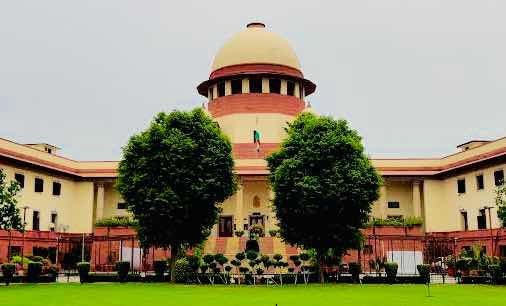The Supreme Court of India, on Friday, rejected a plea that sought to restrain the Bharatiya Janata Party (BJP) from using the ‘lotus’ or ‘kamal’ as their party symbol.
The bench comprising Justice Vikram Nath and Justice PB Varale made it clear that the petition appeared to be more of a publicity attempt than a legitimate legal challenge.
Court Labels Petition as a “Publicity Stunt”
The petitioner, Jayant Vipat, had filed a suit against the BJP in 2022, claiming that the party was not entitled to use the lotus symbol or draw any benefits as a registered political party.
He argued that BJP’s policies were in contradiction to the commitments made to the Election Commission of India (ECI) during its registration as a national party.
Vipat sought the court’s intervention to restrain the BJP from using the lotus symbol, contending that it violated the provisions of the Representation of the People Act. He argued that the use of the lotus, which is India’s national flower, as a party symbol was inappropriate for a political entity.
However, the Supreme Court was unconvinced by the petition. “You want name and fame for yourself and also want to give us the fame as well. Look at the plea, what is the relief claimed by you?” the bench questioned Vipat during the hearing.
After this pointed observation, the court quickly dismissed the plea, asserting that it had no merit.
A Series of Failed Legal Attempts
This isn’t the first time the judiciary has faced such a challenge against the BJP’s use of the lotus symbol.
In October 2023, Vipat’s original suit seeking the same relief was dismissed by a civil court on technical grounds.
Dissatisfied, he then moved to the Madhya Pradesh High Court, where his plea met a similar fate, leading to the present appeal before the Supreme Court.
Interestingly, a similar case was presented before the Madras High Court earlier this year. In March 2024, one T. Ramesh had filed a petition demanding that the ECI cancel the BJP’s allocation of the lotus symbol.
Ramesh argued that since the lotus is India’s national flower, its use by a political party could be seen as a violation of national integrity.
However, the Madras High Court also dismissed that plea, maintaining that there was no legal basis to deny the BJP its right to use the symbol.
The Lotus Symbol and Political Controversy
The lotus, which has been BJP’s symbol since its formation in 1980, holds deep significance in Indian culture and history.
As the national flower, it symbolizes purity, strength, and resilience. However, the debate over its use as a party symbol has generated controversy, with critics arguing that a national emblem should not be associated with any political entity.
Despite the objections raised by petitioners like Vipat and Ramesh, courts across the country have repeatedly ruled in favor of the BJP, allowing it to retain the lotus symbol.
According to the Election Symbols (Reservation and Allotment) Order, 1968, registered political parties have the right to choose and retain their symbols, and any objections to such symbols must meet stringent legal standards.
Verdict
The Supreme Court’s dismissal of the plea is the latest in a string of legal defeats for those opposing the use of the lotus by the BJP.
With both the Supreme Court and Madras High Court rejecting these claims, it is unlikely that further legal challenges on this matter will succeed in the near future.
The BJP continues to use the lotus as a powerful symbol in Indian politics, with the judiciary reaffirming its legitimacy to do so.















